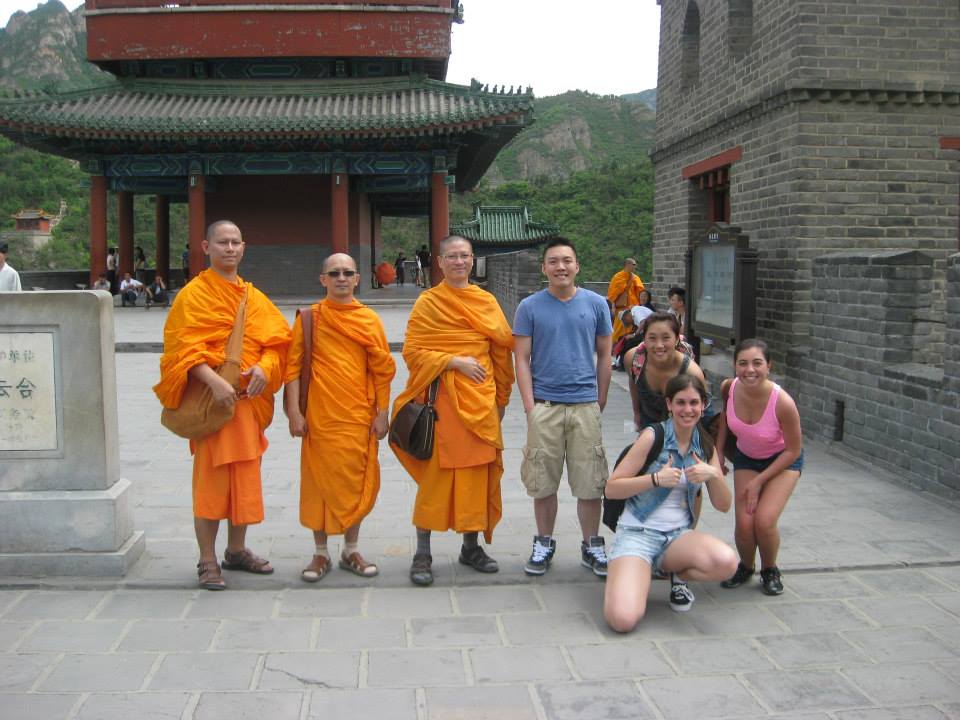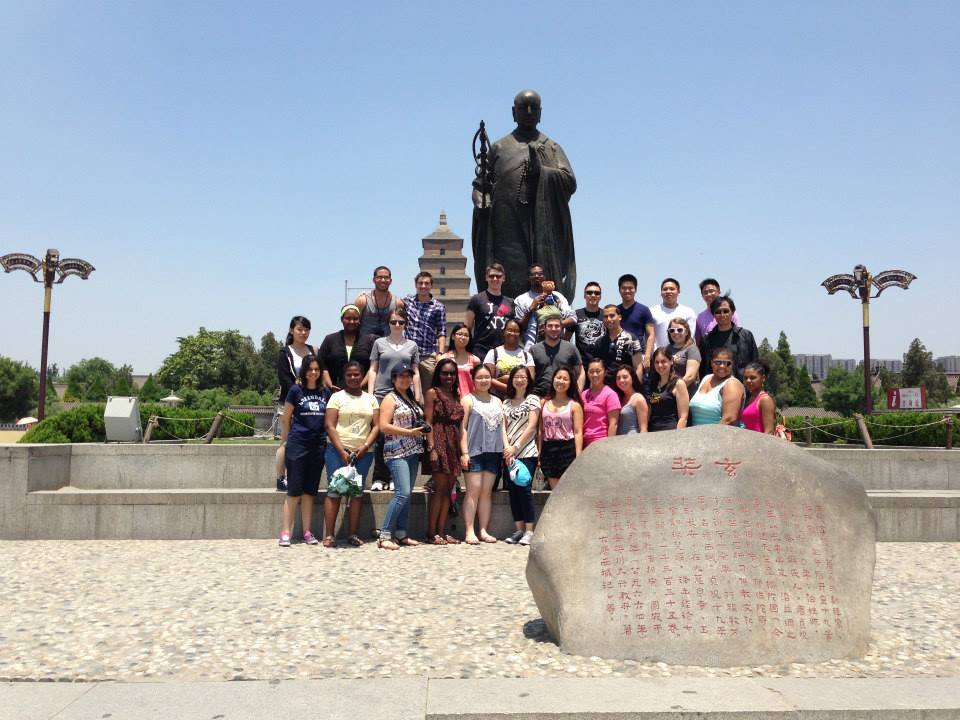
Photo op with some monks my friends and I met on the Great Wall of China.
I like chicken soup. Wǒ xǐhuān jītāng.
It’s probably one of the only phrases I learned to say correctly in Mandarin while studying abroad in China and it still makes me laugh one year later.
No matter what college you go to, even if it’s only a few psychology courses online, everyone should go on a study abroad program at least once in their lifetime. Study abroad is a rite of passage and the college discounts you get is worth the experience. It’s the ability to say that during your young adult life you did something different and learned about a new place. It doesn’t matter what you do or where you go. What’s important is that you get out, see the world, and learn about a country that isn’t America.
One of the best benefits of studying abroad is that your early 20s is the best time to travel. Besides school, and maybe a part-time job, you don’t have that many obligations. Once you’re working the 9-5 grind you’ll find it’s extremely difficult to snag any vacation days right away. Studying abroad provides you with a way to get college credits without sitting in a classroom for an entire semester. Study abroad programs usually offer a variety of courses that range from common core classes to specific credits that can be used towards your major.
Studying abroad through your school is a great way to make friends that will be there after the trip. Most of the people that go on study abroad trips go to the same school. It’s very easy to form close friendships in a short amount of time on these trips. Walking across campus and seeing a familiar face is always a nice surprise in the middle of a hectic day.

New friendships only grow stronger after hours of hiking the Yellow Mountain (Mt. Huangshan) in the southern Anhui province in eastern China.
People don’t just travel because of the boredom from living in the same place. People travel because they thirst to see something new. It’s one thing to see a picture of a famous landmark; it’s quite another to actually see that landmark with your own eyes. Ask anyone that’s ever traveled anywhere, or ask anyone with a smartphone camera; no photo or Instagram filter can truly ever beat the real thing. When you go home and change your profile picture on Facebook to a picture of yourself standing on the Great Wall of China—that’s something to brag about.
To learn about a culture that is foreign from your own is a truly important experience. There are so many different cultures in the world that it is impossible to count. To go through life ignorant of the world around you is a foolish mistake. Hear a different language slide past your lips. Eat a food that you can’t identify. Engross yourself in a way of living that you’ve never experienced.
A study abroad trip is more than just a trip. It’s a chance to take an adventure, fill a scrapbook with memories, and tell stories to your loved ones that will last a lifetime.

Group picture of the 2013 Summer CUNY China trip in front of the Monk Xuanzang statue in Xi’an, China.
–Sam Levitz is a graduate of Brooklyn College and went on the CUNY Study Abroad trip to China the summer of 2013. Follow her on Instagram: slevitz
Follow the Campus Clipper on Twitter and Like us on Facebook!
Interested in more deals for students? Sign up for our bi-weekly newsletter to get the latest in student discounts and promotions and follow our Tumblr and Pinterest. For savings on-the-go, download our printable coupon e-book!


